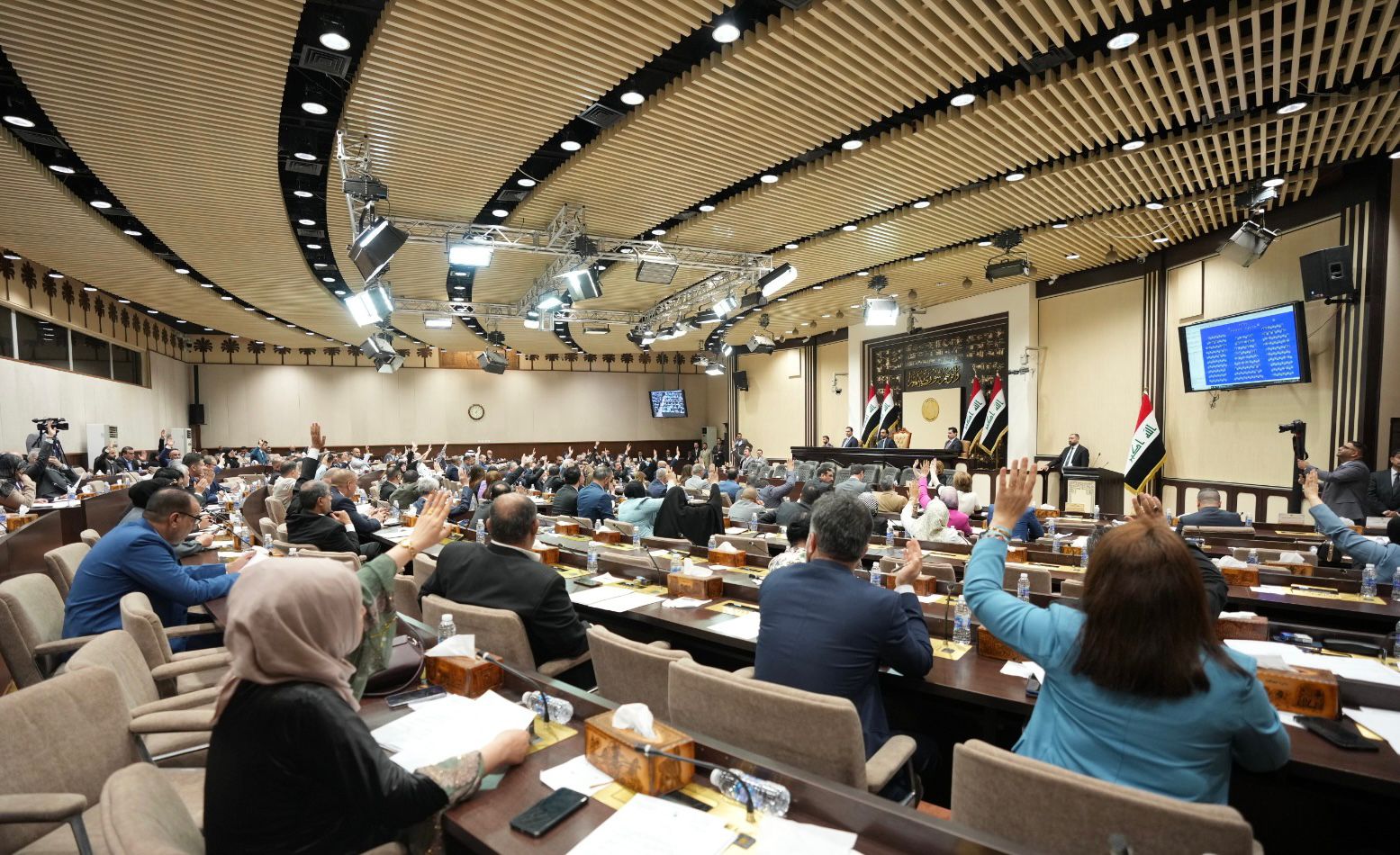Iraq confronts growing concerns over social media's influence on youth

Shafaq News/ Society's anxiety is increasing day after day with the emergence of new crises attributed to social media sites and their negative effects on children and adolescents of different ages and genders.
After parents censored their children's phones or even prevented them from using them as a means of preventing "deviation," a more complex problem emerged with the outbreak of the Coronavirus pandemic, represented by the impact of these platforms on the course of study.
As the Coronavirus pandemic worsened in 2020, the Iraqi Ministry of Education took a decisive step to continue the educational process without interruption by adopting the distance education system.
To achieve this, the "Telegram" and "WhatsApp" applications were used as basic tools for communication between teachers and students.
With the decline of the Coronavirus pandemic and its threat, the need for mobile phones in the educational process has not disappeared.
In subsequent years, applications such as Telegram and WhatsApp continued to play an important role in disseminating school assignments and other study requirements.
Therefore, giving up the phone has become difficult and may even be impossible in some cases.
As a result, the risk of children and adolescents being exposed to negative phenomena and "bad" content persists. These risks may even increase as they rely on technology in their daily lives.
The Iraqi Council of Representatives seeks to address the risks threatening the family and society by emphasizing the necessity of enacting legislation to combat "bad" content on the Internet.
Instead of banning mobile phone use outright, the Council calls for responsible regulation of its use.
Researchers stress the importance of "raising parents" before their children to be aware of the dangers of the Internet and how to protect their children from its risks.
Social media platforms are witnessing a disturbing proliferation of sexually suggestive content that crosses the boundaries of common decency, often in the form of videos or live-streaming sessions.
The creators of this content seek to achieve financial gains by attracting a large number of followers, exploiting the desire of some to watch this type of content.
Perhaps the most dangerous part of this phenomenon is the exploitation of children by their relatives in a live stream on social media, intending to make profits through the number of views.
A "strongly worded" report by Macron
According to previous statistics from UNICEF, more than 175,000 children use the Internet for the first time every passing day, i.e., a new child every half a second.
Social networking sites offer children a world full of opportunities and benefits, but at the same time, they hide another aspect that threatens children's safety and psychological health.
Organizations concerned with protecting children's rights have warned of serious risks threatening children on these platforms, including access to harmful content, sexual exploitation and abuse, cyberbullying, and misuse of their personal information.
In addition, a report published on May 1, 2024, prepared by experts commissioned by French President Emmanuel Macron, revealed the necessity of not allowing children to use smartphones until they reach 13 years of age.
Rather, they should be prevented from accessing traditional social media such as TikTok, Instagram, and Snapchat until they reach 18 years of age.
The "strongly worded" report noted that children need to be protected from "the for-profit technology industry's strategy to capture children's attention, and use all forms of cognitive bias to distance children from their interests, control them, re-engage them and profit from them."
The report also confirmed that children have become a "commodity" in the new technology market, according to The Guardian.
The report contained many recommendations, including that children under the age of three should not be exposed to screens and that children before the age of 11 should not own any phones, noting that phones given to children between the ages of 11 and 13 must not be connected to the Internet.
Moreover, the report affirmed that a 15-year-old should only be able to access what it described as "ethical" social media, such as Mastodon.
The report pointed out that traditional social media that are widely marketed and aim for profit, such as "Tik Tok," "Instagram," and "Snapchat," should not be available to teenagers until they reach 18 years of age.
Parents are afraid
Employee Umm Ali (40 years old), refusing to give her actual name, explains that she fears for her three children (a boy and two girls) "for the bad content that has come after everyone on social media and has no specific place," according to her description.
"My children are teenagers and close in age, and despite my proper upbringing, I fear for them as a result of the offensive videos and websites I watch," she told Shafaq News Agency.
She added, "In general, I cannot prevent my children from owning mobile devices. They do not make mistakes, and I do not want to punish them for the guilt of others. It is better to hold those who do wrong accountable, but the fear within me for my children remains present. I am a mother, and this is my right."
"In one way or another, we try to find a way out not to shake our children's self-confidence," says Hisham Hassan (35 years old) about the way he deals with his two children.
Speaking to Shafaq News Agency, he confirmed that "the safest way is to befriend children, understand their thinking, follow the social media sites they are exposed to, and try to direct them towards useful sites or those that benefit them academically by learning about people's cultures and customs, and so on."
While his wife was more severe, as she constantly demanded that her husband block offensive websites and prevent her children from being exposed to them, the husband opposed this by saying, "These videos are everywhere, and blocking is not the solution. Rather, the best solution is continuous and careful monitoring of the children."
Phone and Study
Sami Muhammad (39 years old) explains what he described as "suffering" from social media sites and their negative effects on children, saying, "My daughter is 13 years old, meaning she is in a dangerous stage of life where she begins to become curious about her surroundings and what is happening around her and thus be affected by it."
He added while speaking to Shafaq News Agency, "I lived outside Iraq for seven years, and last year, I returned and lived in the Kurdistan Region. Therefore, my daughter has no friends, and the language factor also plays a role in forming social relationships. In this context, she has no means of communicating with the world and having fun other than her mobile phone. This means that depriving her of it is depriving her of her childhood."
He points out that "it is not only about learning, communicating with others, and having fun, but it has also become linked to studying. Some lessons and school assignments come through a private school group on Telegram. Therefore, the problem is complex, and I cannot find a solution to it."
"I watch shocking videos of teenage girls. One of the videos was of female students in middle school in class exchanging obscene words that I, as a man, am ashamed to say in public. Moreover, one of them also makes sexual actions with her colleagues, and I think that my daughter will consider these actions as normal and may imitate them when she sees them, so what should I do? Should I deprive her of her mobile phone, or should I leave my work and obligations and watch her all the time?", Muhammad adds.
The need for legal legislation
Sarwa Abdul Wahed, a member of the Parliamentary Women and Children Committee, says to Shafaq News Agency, "Children and teenagers should not be exposed to degrading content sites. The State is also obligated, even in democratic systems, to block these harmful sites for those under 16 years of age, but unfortunately, in Iraq, everything is allowed."
She adds, "There are leaders and well-known senior figures who support this content by supporting what is known as bloggers and fashionistas, or even blackmailers who own platforms or channels, as these blackmailers spread degrading content and abuse society."
Abdul Wahed continues, "We need to legislate a law to confront degrading content and regulate the ability to use devices and access the Internet. But until this moment, no law regulates that."
She confirms, "I am against setting a specific age for using a mobile device, but I am in favor of blocking bad sites that reach such categories. For example, in the United States, 60% of the content on the TikTok website before it was banned was blocked for children. This is what must be done in Iraq."
Raising is part of the solution
Social researcher Ibtisam Al-Shammari says, "The Internet is very important and necessary for humans to benefit from it, but harmful video clips to which the user is exposed, whether a young man or a girl, have begun to appear suddenly and almost automatically to us, whether to those interested or not."
She adds, "The moral system governs exposure to these sites through the proper upbringing of children, but this solves the problem partially, not completely."
Raising parents
Academic researcher Ahmed Al-Dhahabi confirms to Shafaq News, "There is a real need to educate parents before raising children because when many parents prevent their children from using the Internet for long hours or prevent them from watching scandalous content, they, in return, spend long times in using these devices in front of their children."
He explains that "when children see their parents excessively using the Internet, this will be an excuse for them to continue following social media sites and the Internet in general and being exposed to the wrong sites."
"There are conditions that parents should put in place to prevent their children from being constantly exposed to the Internet and following abusive social networking sites, including setting a timetable for turning the Internet on and off and not allowing it to remain open permanently, because there are many children who ignore their parents and stay up until the morning hours on the Internet, as well as blocking pornographic sites and harmful programs by controlling them through programs that restrict broadcasting and limit its harm, in addition to the necessity of continuous communication between parents and children and listening to their ideas in order to consolidate the correct educational values," Al-Dhahabi adds.
He stresses that "there are students who have mobile phones to study, but unfortunately, they use tablets and mobile phones to follow websites that have corrupted society, which hurts the student himself as his academic level declines. Moreover, academic studies in psychology confirm that addiction to the Internet and harmful websites is more dangerous than drugs because they damage minds."





